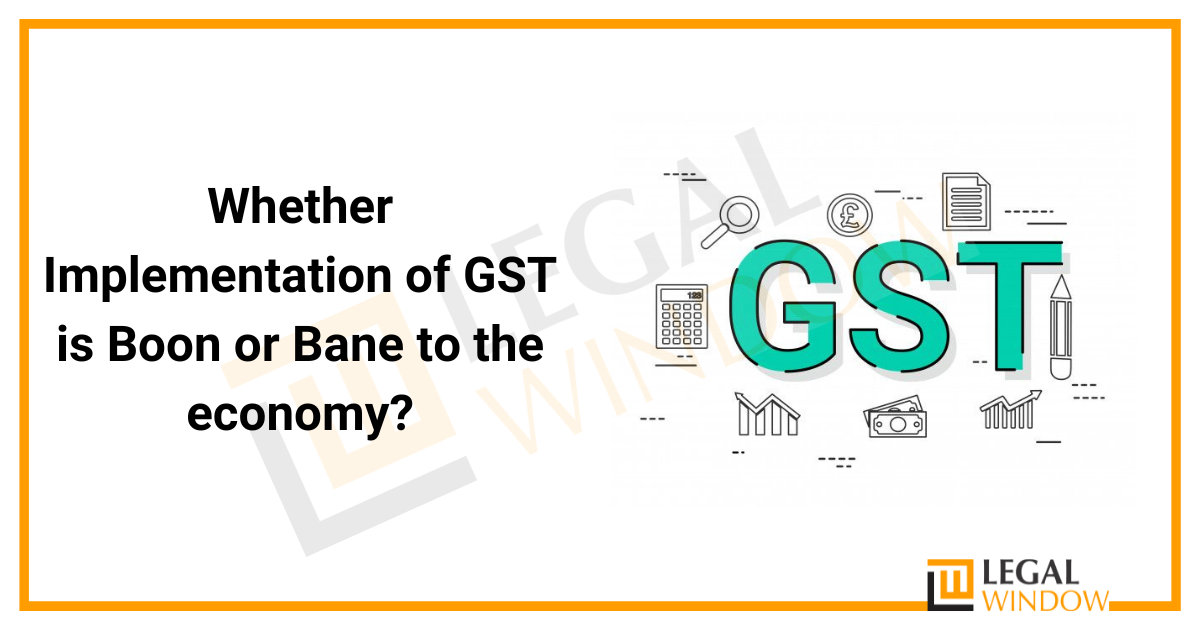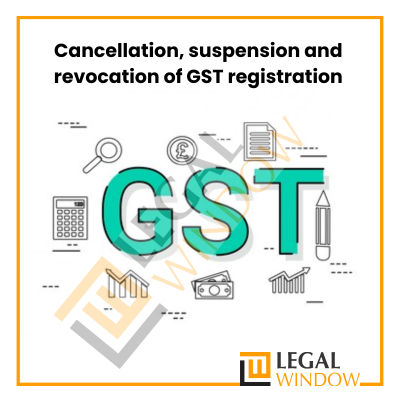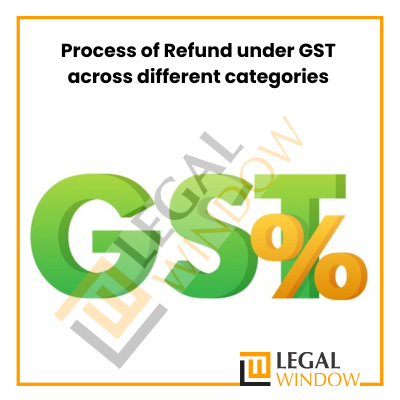 Every coin has two faces and so the same applies to the concept of GST implementation in India. Of course, this is the biggest tax reform in post-independence India and hence will have a huge and direct futuristic impact on the economic front. However, there are also a few negotiable short-term negative issues associated with it, but in the interest of an accelerated economy, a revolutionary step like GST has indeed become mandatory. This article discusses whether the implementation of GST is a boon or a bane to the economy.
Every coin has two faces and so the same applies to the concept of GST implementation in India. Of course, this is the biggest tax reform in post-independence India and hence will have a huge and direct futuristic impact on the economic front. However, there are also a few negotiable short-term negative issues associated with it, but in the interest of an accelerated economy, a revolutionary step like GST has indeed become mandatory. This article discusses whether the implementation of GST is a boon or a bane to the economy.
| Table of Contents |
Overview of GST Regime
The Goods and Services Tax (GST) is an indirect tax that was introduced in India on 1 July 2017 and applied across India, replacing several cascading taxes levied by the central and state governments. It was introduced as the Constitution (One Hundred and First Amendment) Act, 2017 after the passage of the 122nd Amendment to the Constitution.
The Goods and Services Tax is an indirect and uniform tax that will be introduced as a dual system due to the federal structure of the country.
In India, tax is collected in two ways. One type of tax is levied directly, such as income tax and corporate tax, and is called a direct tax. The second category is called an indirect tax, which is collected from consumers for goods and services. Both central and state have their various taxes that fall under this category.
GST essentially means that all indirect taxes collected by the central government will be merged into CGST and all indirect taxes by the state government will be merged into SGST.
GST History, Futuristic Outlook, and Global Scenario
- GST was first introduced in France in 1954. And there are currently almost 160 countries that have GSTs (with slight variations in their nature, scope, and applicability).
- Most of the countries with GST systems are well-developed/fast developing countries.
- Only Canada has a Dual GST system which has paved the way for Dual GST (CGST & SGST) in our country.
- Being a technology-based and transparent tax structure, it will clarify things to be applied with equal value across the country.
- In the initial stage, the idea of 5 different tax tables will facilitate the classification of goods and services.
- Indirect tax issues will be resolved within a limited timeframe.
- Generating more revenue will enable the government for more development work in all sectors of the country.
Objective behind GST
- To eliminate indirect tax problems
- To remove the cascading tax effects
- Increase the number of taxpayers
- Entertain tax administration based on consumption instead of production
- Create an upheaval in the government. Revenues
- Reduce tax evasion and corruption
Benefits of GST implementation
- The emergence of GST has completely replaced various indirect taxes at both the central and state levels (eg excise duty, service tax, value added tax, sales tax, luxury tax, entertainment tax, excise, and entry tax and many others).
- The whole nation became a common market for trading.
- Poor and underdeveloped states were given a chance for economic growth.
- The huge growth in foreign direct investment.
- Tax management has become simpler, more transparent, and simpler.
- Reducing tax evasion and corruption
- Completely removed the concept of cascading effects
- Various tax rates (i.e. 0%, 5%, 12%, 18% and 28%) have been introduced for the convenience of manufacturers/service providers as well as consumers.
- He completely and successfully eliminated various tax barriers between the center and the state.
- A great increase in government revenue.
- The number of taxpayers has increased significantly.
- Positioned in the global ranking of “Ease of Doing Business”, India is becoming known as a perfect, profitable, and new destination for foreign investors.
Pros of GST Regime
- VAT at the state level was introduced in our country mainly to eradicate the cascading effect i.e. tax on tax which used to occur with sales tax. After the introduction of VAT, traders can claim input VAT against output VAT. But the main disadvantage of VAT is that it is levied after excise duty and service tax are levied and again causes a cascading effect. Hence, effective implementation of GST will help eradicate the cascading effect.
- Instead of maintaining large records, returns, and reporting under various laws, all assessees will feel comfortable in GST as compliance costs will be reduced. It also simplifies the procedure for claiming the input tax rebate.
- With full and seamless credit, manufacturers, or traders do not have to include taxes as part of their production costs, which is a very strong reason to say that we can see a reduction in prices. So GST leads to lower prices and helps price-sensitive consumers. However, if the government tries to introduce GST at a higher rate, it may be lost.
- The export of goods/services will not be taxed under GST. So it is good for export-oriented businesses and Indian goods can comfortably compete in global competition as their prices will come down comparatively. This will lead to GDP growth as well as favorable BOP.
- By merging all indirect taxes into one basket, the government will be able to cover every manufacturer, service provider, and seller who is not liable to tax earlier due to various exemptions under various laws. The simplified procedure also encourages traders to comply with tax rules and procedures.
Cons of the GST Regime
- VAT was first introduced in 1998, though it came into force in 2005. This type of delay can become a potential threat to GST as there are many changes between the formulation of the law and the actual implementation.
- GST is a consumption tax. This has the effect of increasing the revenue of state governments where consumption is relatively high.
- GST will truly benefit end consumers only if the formulated laws are followed and implemented both in letter and spirit.
- A high rate of GST will cause even more problems for consumers than solving the existing problems. If different states opt for different SGST rates, the main purpose of introducing GST will be defeated.
- The government does not give any guarantee that the prices of various goods and services will surely come down after the implementation of GST. Unless the government makes any rule or law, price increase or decrease is the prerogative of the seller/manufacturer/service provider.
Is GST a real boon for India?
- Most of the developed/fast developing countries around the world are using it and so our nation is now on the same path.
- Abundant revenue empowers the government to provide better social privileges, safety, protection, and other important services to its citizens so that they can lead a healthy, safe and enjoyable life.
- The growth of foreign direct investment will bring a huge opportunity against unemployment and a lower global ranking.
- The emergence of various advanced software makes calculations accurate and fast. Advanced technology in economic activities will make our country efficient in terms of global expansion. As of now here we can see how it will affect the Indian economy and move it in a positive direction as a developed country. Frankly, there is a real need to step up against the old tax regime at this point.
 Final words
Final words
The implementation of GST in India is a historic feat for the futuristic growth of the Indian economy. Our next generation will get to taste the benefits of GST. So, in a broad sense, GST is a big boon for India which will help our country to enter the list of developed countries very soon.
CA Pulkit Goyal, is a fellow member of the Institute of Chartered Accountants of India (ICAI) having 10 years of experience in the profession of Chartered Accountancy and thorough understanding of the corporate as well as non-corporate entities taxation system. His core area of practice is foreign company taxation which has given him an edge in analytical thinking & executing assignments with a unique perspective. He has worked as a consultant with professionally managed corporates. He has experience of writing in different areas and keep at pace with the latest changes and analyze the different implications of various provisions of the act.
Categories
- Agreement Drafting (23)
- Annual Compliance (11)
- Change in Business (36)
- Company Law (147)
- Compliance (88)
- Digital Banking (3)
- Drug License (3)
- FEMA (17)
- Finance Company (42)
- Foreign Taxation (6)
- FSSAI License/Registration (14)
- GST (116)
- Hallmark Registration (1)
- Income Tax (199)
- Latest News (34)
- Miscellaneous (164)
- NBFC Registration (8)
- NGO (14)
- SEBI Registration (6)
- Section 8 Company (7)
- Start and manage a business (20)
- Startup/ Registration (126)
- Trademark Registration/IPR (40)
Recent Posts
About us
LegalWindow.in is a professional technology driven platform of multidisciplined experts like CA/CS/Lawyers spanning with an aim to provide concrete solution to individuals, start-ups and other business organisation by maximising their growth at an affordable cost.







